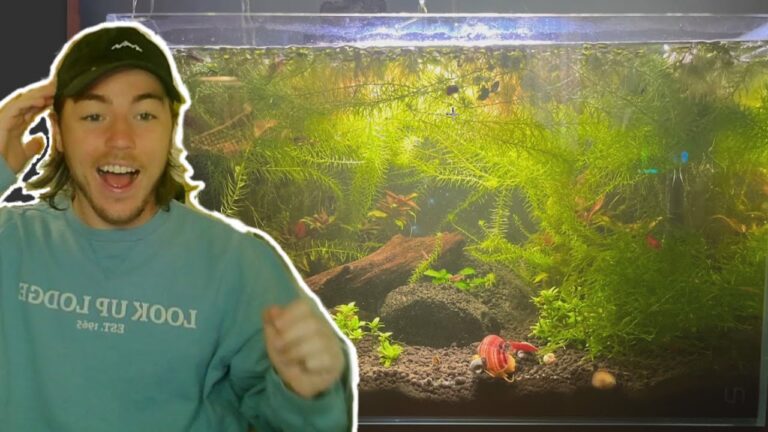Exploring Life: Biologist Job Description and Salary
Biologist Job Description Template
Biologist Job Description A biologist is a professional who studies living organisms, their origins, behavior, and interactions with the environment. They conduct research, perform experiments, and analyze data to gain a deeper understanding of various life forms and their ecosystems. One of the important responsibilities of a biologist is to collect samples from different environments such as forests, oceans, or laboratories. They examine these samples under microscopes, identify species, and record their findings. Biologists also use advanced technologies and techniques to study DNA, genes, and cells to uncover the mysteries of life. Another crucial aspect of a biologist’s role is to conduct experiments and analyze data to further scientific knowledge. They design experiments to test hypotheses, collect data, and interpret the results. They often collaborate with other scientists, such as chemists or physicists, to study complex biological phenomena. Biologists work in various settings, including universities, research institutions, pharmaceutical companies, and government agencies. They may specialize in different branches of biology, such as marine biology, genetics, or ecology, depending on their interest and expertise. To become a biologist, one typically needs a bachelor’s degree in biology or a related field. Some positions may require advanced degrees, such as a master’s or Ph.D. Biologists must also possess strong analytical, critical thinking, and problem-solving skills. They should be detail-oriented and have excellent written and verbal communication skills to present their findings and collaborate effectively with colleagues. In conclusion, a biologist is a dedicated professional who explores the complexities of life through research, experiments, and data analysis. Their work contributes to our understanding of the natural world and plays a vital role in various scientific advancements.Biologist Responsibilities
- Conducting research and experiments to study living organisms and their interactions with the environment
- Collecting and analyzing data, and interpreting results
- Developing and testing hypotheses
- Designing and carrying out experiments in the lab or field
- Using various scientific instruments and techniques for observation and analysis
- Recording and documenting findings accurately
- Preparing scientific reports and presentations
- Collaborating with other scientists and researchers
- Keeping up-to-date with the latest advancements and research in the field
- Teaching and mentoring students or junior biologists
- Ensuring compliance with ethical and safety guidelines in research
- Applying for grants and funding to support research projects
- Contributing to scientific publications and conferences
- Participating in field expeditions and surveys
Biologist Requirements
How Much Does A Biologist Make?
Biologist Salary
| Position | Salary Range |
|---|---|
| Research Assistant | $30,000 – $45,000 |
| Laboratory Technician | $35,000 – $50,000 |
| Wildlife Biologist | $40,000 – $60,000 |
| Marine Biologist | $45,000 – $70,000 |
| Microbiologist | $50,000 – $80,000 |
A biologist’s salary can vary depending on factors such as experience, education, and job location. The table above provides a general range of salaries for different positions within the field of biology. Research assistants and laboratory technicians typically earn between $30,000 and $50,000 per year. Wildlife biologists and marine biologists may earn between $40,000 and $70,000, while microbiologists have a higher salary range of $50,000 to $80,000. It’s important to note that these figures are just estimates and actual salaries may differ based on individual circumstances.
Biologist Salaries by Country
Top Paying Countries for Biologist
| Country | Average Salary (USD) |
|---|---|
| Switzerland | 90,000 |
| United States | 77,000 |
| Australia | 67,000 |
| Denmark | 65,000 |
| Germany | 63,000 |
A biologist’s salary can vary greatly depending on the country they work in. According to available data, Switzerland is the top paying country for biologists, with an average salary of $90,000 per year. The United States follows closely behind with an average salary of $77,000. Australia, Denmark, and Germany also offer competitive salaries for biologists, with average earnings ranging from $63,000 to $67,000 per year.
A video on the topic Biologist
Video Source : Seri! Pixel Biologist!Interview Questions for Biologist
1. What is your educational background in biology?
I have a Bachelor’s degree in Biology and a Master’s degree in Molecular Biology.
2. Can you explain your research experience in the field?
During my Master’s program, I conducted research on the genetic basis of cancer and worked on identifying potential therapeutic targets. I have also worked as a research assistant in a lab studying the effects of environmental factors on plant growth and development.
3. What is your understanding of the scientific method?
The scientific method is a systematic approach used by scientists to investigate natural phenomena. It involves making observations, formulating hypotheses, conducting experiments, analyzing data, and drawing conclusions based on evidence.
4. How do you stay updated with the latest developments in the field of biology?
I regularly attend scientific conferences and symposiums, read scientific journals, and follow reputable scientific websites and blogs. I also collaborate with other researchers and participate in discussions to exchange knowledge and stay updated.
5. Can you describe a challenging project you have worked on and how you overcame the challenges?
One challenging project I worked on involved studying the effects of a newly discovered virus on insect populations. The main challenge was establishing a reliable experimental setup and designing assays to measure the virus’s impact. I overcame this by collaborating with experts in virology and entomology, who provided guidance and suggestions for the experimental design and data analysis.
6. What are some of the key skills necessary for a biologist?
Some key skills necessary for a biologist include strong analytical and problem-solving skills, attention to detail, excellent communication and collaboration skills, proficiency in laboratory techniques, and the ability to analyze and interpret data.
7. How do you handle working under pressure and tight deadlines?
I handle working under pressure and tight deadlines by prioritizing tasks, breaking them down into smaller, manageable steps, and creating a schedule to ensure timely completion. I also communicate with my team and supervisor to discuss any challenges or adjustments that may be needed.
8. Can you discuss any experience you have with fieldwork or working in outdoor environments?
During my undergraduate studies, I participated in several fieldwork projects where I collected samples, conducted surveys, and observed various organisms in their natural habitats. I also worked as a field assistant for a summer, assisting in data collection for a study on bird migration patterns.
9. How do you ensure the accuracy and reliability of your experimental results?
To ensure accuracy and reliability, I follow strict experimental protocols, maintain detailed records of procedures and observations, and replicate experiments whenever possible. I also perform statistical analyses on the data to determine the significance of the results.
10. What are your career goals as a biologist?
My career goals as a biologist include contributing to scientific advancements through research, collaborating with other scientists, and mentoring aspiring biologists. I also aim to continue learning and staying updated with the latest developments in the field.






